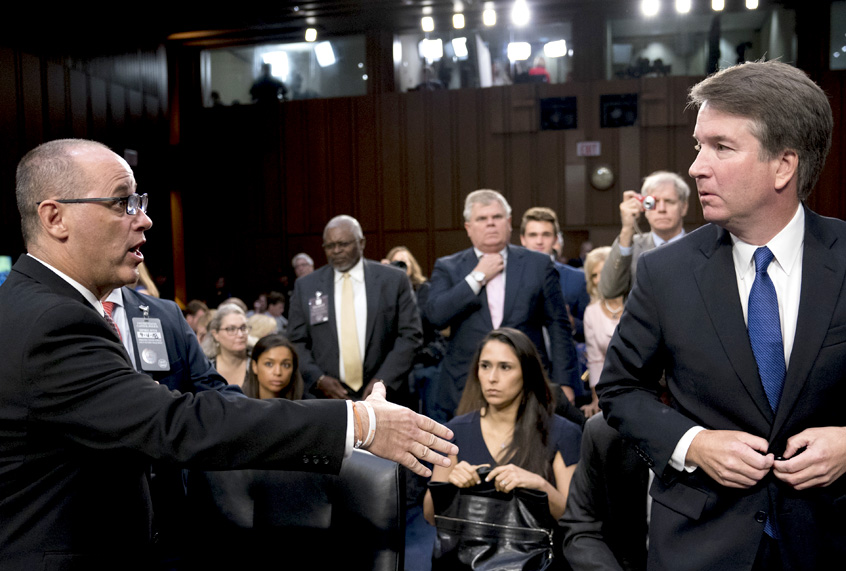Fred Guttenberg, the father of a young woman named Jamie Guttenberg who was murdered during the Marjory Stoneman Douglas High School shooting in Florida earlier this year, was snubbed Tuesday by President Donald Trump’s pick for the United States Supreme Court, Brett Kavanaugh.
“At the Kavanaugh hearings. A lot of thoughtful discussion, until it got to Ted Cruz. Thankfully, he did acknowledge elections have consequences. After his discussion of the 2nd Amendment now, looking forward to Beto O’ Rourke becoming senator as a consequence of this elections,” Guttenberg posted on Facebook on Tuesday.
Of Trump’s Supreme Court nominee, Guttenberg added in a separate tweet: “Just walked up to Judge Kavanaugh as morning session ended. Put out my hand to introduce myself as Jaime Guttenberg’s dad. He pulled his hand back, turned his back to me and walked away. I guess he did not want to deal with the reality of gun violence.”
It is possible that Kavanaugh avoided shaking hands with Guttenberg as a result of his well-documented anti-gun control ideology. When Kavanaugh was a judge on the Court of Appeals for the District of Columbia Circuit in 2011, he wrote a dissent in a case where the majority of the bench affirmed a gun registration law in Washington, according to Bloomberg. In doing so, he used selective interpretations of a Supreme Court ruling from 2008, District of Columbia v. Heller, that established an individual right to firearms, as well as a Supreme Court ruling from 2010, McDonald v. Chicago, which used the Fourteenth Amendment to extend that right to the individual states.
As Bloomberg explained:
In his dissent, Kavanaugh rejected the very idea of balancing gun rights against the state’s interest in protecting the public from violence. “In my view,” he wrote, “Heller and McDonald leave little doubt that courts are to assess gun bans and regulations based on text, history and tradition, not by a balancing test such as intermediate or even strict scrutiny.” But this “text, history, and tradition” standard is derived from a selective reading of Heller. It’s a poor foundation on which to rest the whole of U.S. gun law.
Of course, it is important to note that the Second Amendment has not always meant what the anti-gun control movement argues today that it meant. Different states in the 19th century had wildly different approaches to regulating guns, and up until the 1970s, there was never any serious political movement which argued that the Second Amendment prohibited all forms of gun control. The consensus view was that the Second Amendment referred to the right to form militias and engage in other collective actions. As then-former Chief Justice Warren Burger explained in 1991, the notion that the Second Amendment guaranteed individuals the rights to acquire firearms without any kind of regulation was “one of the greatest pieces of fraud — I repeat the word ‘fraud’ — on the American public by special interest groups that I have ever seen in my lifetime.”
More real than the spurious historical arguments used by the anti-gun control movement to avoid regulating firearms, though, is the pain felt by grieving parents like Guttenberg. As he wrote on Facebook after the shooting:
My heart is broken. Yesterday, Jennifer Bloom Guttenberg and I lost our baby girl to a violent shooting at her school. We lost our daughter and my son Jesse Guttenberg lost his sister. I am broken as I write this trying to figure out how my family get’s through this. We appreciate all of the calls and messages and we apologize for not reacting to everyone individually. Jen and I will be figuring things out today and so we ask that you respect out privacy. We will be getting messages out later regarding visitation. Hugs to all and hold your children tight.


